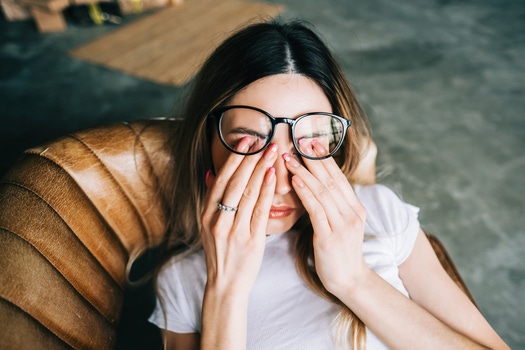- NZ Food Composition Database (August 2024)
If you are feeling tired all the time, low energy levels could be a sign that you’re not getting enough iron. In fact, between 12-13% of women aged 15-50 years are low in iron.
It seems Popeye’s “I’m strong to the finish ‘cause I eats me spinach” mantra was on to something!
“Iron deficiency is a common nutritional problem for women, particularly those who have heavy periods,” says Sanitarium dietitian Eliza Baird. A healthy vegetarian diet, including a wide variety of plant foods, can deliver all the iron you need each day. “Even for non-vegetarians, most of the iron in the diets of New Zealanders comes from plant-based foods not, as many people think, from meat.”
Research indicates that vegetarians are no more likely to have iron-deficiency anaemia than non-vegetarians. A diet rich in wholegrains, legumes, nuts, seeds, dried fruits, iron-fortified cereals and green leafy vegetables provides an adequate iron intake.
Iron is an essential mineral needed to produce red blood cells. It’s also crucial for the production of haemoglobin, which transports oxygen throughout the body. When a person is very low in iron, or anaemic, the heart needs to work harder to ensure the muscles and organs get the oxygen they need. When your iron levels drop, you may feel tired and sluggish, even when you’re getting plenty of rest. Your body cannot produce iron, so you need to make sure you’re getting all you need in your daily diet. Fortunately, there are plenty of iron-rich plant-based foods that can help give your energy levels a lift.
Worldwide, about 1.3 billion people have severe iron deficiency, known as iron deficiency anaemia, making it the most common nutrition deficiency globally.
Common symptoms of iron deficiency and, at the extreme end, anaemia, range from excessive fatigue to brain fog, and even hair loss. Other symptoms include:
Your Recommended Daily Intake (RDI) of iron really depends on your gender and age. Women aged 19-50 need 18mg of iron a day, dropping to 8mg a day in the post-menopausal years. The RDI increases to 27mg a day for pregnant women. For children, it ranges from 8mg for younger kids of both genders to 15mg for girls aged 14-18. And while that might sound like a lot, it’s easy to ensure you’re getting all you need from a balanced vegetarian diet. getting all you need from a balanced vegetarian diet.
| Serve Size | Iron (mg) per serve | Iron (mg) per 100g |
Wholegrains | |||
Sanitarium Weet-Bix™ | 2 wheat biscuits (approx. 33g) | 3.0 | 9.1 |
Mixed-grain bread roll | 1 roll (approx. 80g) | 1.1 | 1.4 |
Quinoa (cooked) | ½ cup cooked (approx. 100g) | 1.5 | 1.5 |
Brown Rice (cooked) | ½ cup cooked (approx. 100g) | 0.4 | 0.4 |
Nuts & Seeds | |||
Chia seeds | 30g | 2.1 | 7.1 |
Pumpkin seeds/ pepitas | 30g | 2.6 | 8.5 |
Cashews | 30g | 1.8 | 6.1 |
Tahini | 30g | 1.5 | 5.1 |
Almonds | 30g | 1.1 | 3.8 |
Legumes & Plant-Based Meat Alternatives | |||
Tempeh | 170g | 3.7 | 2.2 |
Tofu (firm) | 170g | 3.4 | 2.0 |
Vege Delights™ Vegie Sausages | 2 sausages (approx. 100g) | 3.5 | 3.5
|
Lentils | 1 cup (approx. 150g) | 2.8 | 1.9 |
Chickpeas | 1 cup (approx. 150g) | 2.1 | 1.4 |
Kidney beans | 1 cup (approx. 150g) | 2.1 | 1.4 |
Edamame | 1 cup (approx. 150g) | 2.9 | 1.9 |
Baked beans | 1 cup (approx. 150g) | 1.8 | 1.2 |
Vegetables & Fruit | |||
Green peas, boiled & drained | ½ cup cooked (approx. 75g) | 0.9 | 1.2 |
English spinach (boiled) | ½ cup cooked (approx. 75g) | 1.4 | 1.8 |
Dried apricots | 4 halves (approx. 40g) | 0.5 | 1.2 |
Dried dates | 5 fruit (approx. 40g) | 0.8 | 1.9 |
In comparison, a 65g serve of rump steak (cooked weight) delivers 1.9mg of iron and an 80g chicken breast (cooked) provides 0.3mg of iron1.
While too little iron in your diet is an issue, so, too, is too much iron. Excessive iron stores can damage the liver, heart and pancreas. And that’s where a plant-based diet really pays off. Iron from meat, known as haem iron, is absorbed by the body whether we need it or not. However, the absorption of iron from plant-based sources, or non-haem iron, is more carefully controlled by our bodies and is more readily absorbed when the body has a need for iron.
The tendency of vegetarians to store less iron may also explain their lower rates of heart disease, diabetes and colon cancer.
Vegetarian diets are often higher in vitamin C which is also great news when it comes to ensuring you’re getting enough iron each day. Eating vitamin C rich foods with your meals will increase iron absorption. Fabulous food pairs that pack an iron/vitamin C one-two punch include citrus and spinach (think salad with a zingy lemon dressing), berries and whole grains (strawberries on your morning Weet-Bix™) and tomatoes and beans (baked beans on toast with a side of roasted tomatoes). “Vegetarians typically have high intakes of vitamin C from a wide variety of fruit and vegetables, so that’s fantastic for making sure you’re maximising your iron,” Sanitarium Dietitian Eliza Baird says.
Research shows tea, including herbal tea, coffee, cocoa and red wine can inhibit the absorption of non-haem iron from plant-based foods. So, if you’re trying to boost your iron, our Sanitarium dietitians recommend you try to avoid having a cuppa with your plant-based breakfast and limit alcohol.
We’ve found five easy vegetarian recipes that can help increase your daily iron intake.

The latest nutrition advice, plus health and wellness tips delivered to your inbox monthly
